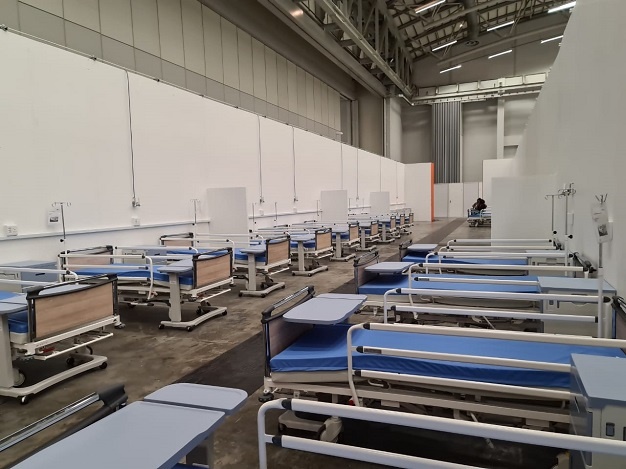
Efforts by the DA-run Western Cape province and City of Cape Town to fight Covid-19 are paying off and this is something that should be replicated elsewhere, writes interim DA leader John Steenhuisen.
I am extremely proud of the swift and effective action taken by the DA-run Western Cape province and City of Cape Town to protect citizens from the Covid-19 risk.
Their response to this unprecedented challenge has amply demonstrated the difference that a caring and capable administration can make to lives and livelihoods. They have learnt lessons and developed systems that could be helpful to other provincial and metro governments.
The Western Cape's health response strategy has been to prioritise prevention, but also to build temporary additional "field" hospital capacity so as to be able to treat all those in need of medical care. These efforts have paid off, with the system having spare capacity right now, and with still more beds coming online shortly.
The Khayelitsha field hospital (opened 1 June) has 60 beds, with around 50% currently in use; the Hospital of Hope at the Cape Town International Convention Centre (opened 8 June) has 850 beds, with around 40% currently in use; and the Brackengate field hospital, with 338 beds, will open on 10 July. Another 222 beds will be available soon in smaller field hospitals around the province. Field hospitals offer intermediate care, relieving pressure on those hospitals offering acute care, where occupancy is therefore also still manageable.
Identify and contain "bushfires"
On the prevention side, the Western Cape operates 19 testing and triage facilities across the province with another 24 opening soon. The strategy has been to identify and contain "bushfires" before they get out of control.
Since the start of the pandemic, more than 3 000 people have made use of the province's quarantine and isolation facilities. The province's Red Dot taxi service transports residents to these facilities in specially equipped, regularly sanitised taxis, which also help to keep healthcare workers safe. Every effort has been made to reduce the risk to frontline staff.
The province has made use of innovative technology to keep processes safe and efficient. Patients are managed through a Bed Bureau system, which helps manage bed occupation across all facilities. An oxygen calculator has been developed to assist facilities to access their daily oxygen requirements.
Chronic medicine is delivered to patients' homes to protect high-risk residents and reduce crowding in healthcare facilities. The process is managed and delivery confirmed via an automated WhatsApp system, as is an appointment system, to spare high-risk chronic patients the need to queue at facilities. The CTICC Hospital of Hope is entirely paperless.
The province has been open and transparent in sharing Covid-19 data with the public, embarked on a massive communications campaign to keep residents up to date on all information necessary to stop the spread of the virus, and has made huge efforts to provide a safety net to vulnerable communities, including through school feeding schemes and shelters.
The City of Cape Town recently achieved a ranking of 79th out of 1 000 cities worldwide for its Covid-19 response and was the only South African city to feature. This reflects the hard work that has gone into shoring up the city's healthcare and economic resilience since the virus hit.
Best practice
It was the first metro to hold a virtual full council sitting, where it passed an adjusted budget with a R3 billion social support package. This was made possible by the City's history of responsible, clean financial management.
Cape Town offered the most comprehensive services to homeless people of any metro during the initial hard lockdown. Its Strandfontein and Culemborg temporary emergency facilities accommodated more than 2 000 people, providing meals, shelter, blankets, sanitation, and medical and psychosocial services, including assistance with getting ID documents and registering for social programmes.
It has distributed 200 000 cloth masks in vulnerable communities and to frontline staff, and its winter readiness plan meant that emergency and disaster management staff were deployed quickly across the city to mitigate the impact of stormy weather.
These DA-run governments have strived for best practice. This is constantly a work in progress, but a solid foundation has been laid for future success.
Lessons learnt here can hopefully be shared and replicated elsewhere, as other parts of the country catch up in terms of infections. This virus doesn't care for provincial borders or political affiliation. We are all in this fight together and it is crucial that we pool our resources and share learnings wherever we can.
- John Steenhuisen is the interim leader of the Democratic Alliance.
** Want to respond to the columnist? Send your letter or article to voices@news24.com with your name, profile picture, contact details and location. We encourage a diversity of voices and views in our readers' submissions and reserve the right not to publish any and all submissions received.
Disclaimer: News24 encourages freedom of speech and the expression of diverse views. The views of columnists published on News24 are therefore their own and do not necessarily represent the views of News24.